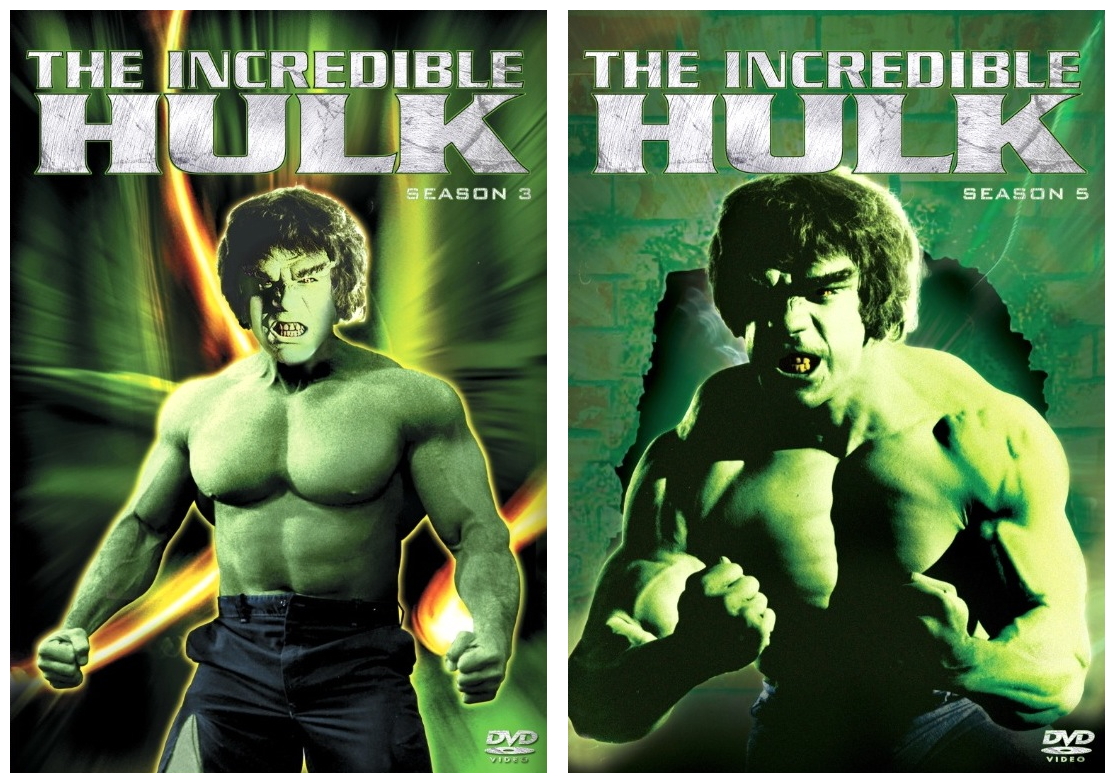
Before Stan Lee and Jack Kirby created The Fantastic Four and launched the Silver Age of comic book superheroes at Marvel, they created a handful of monsters with weird names like Rommbu, Fin-Fang-Foom, and Googam Son Of Goom, which appeared in Tales Of Suspense and Strange Tales magazines. The Hulk was the last of their monsters who, in turn, became one of the team’s first superheroes. The Incredible Hulk #1 debuted in May 1962 and told the story of how scientist Robert Bruce Banner rescued Rick Jones from the detonation of an experimental gamma bomb, but still absorbed a full dose of gamma radiation. That first night Banner undergoes the first of many transformations into the super-strong brute known as the Hulk, and Jones is the only person who knows who he really is. The Hulk was coloured grey in the first comic appearance, but later changed to his signature green because of a problem with the printer. It was cancelled after only six issues but, in those six issues, his entire backstory was created.
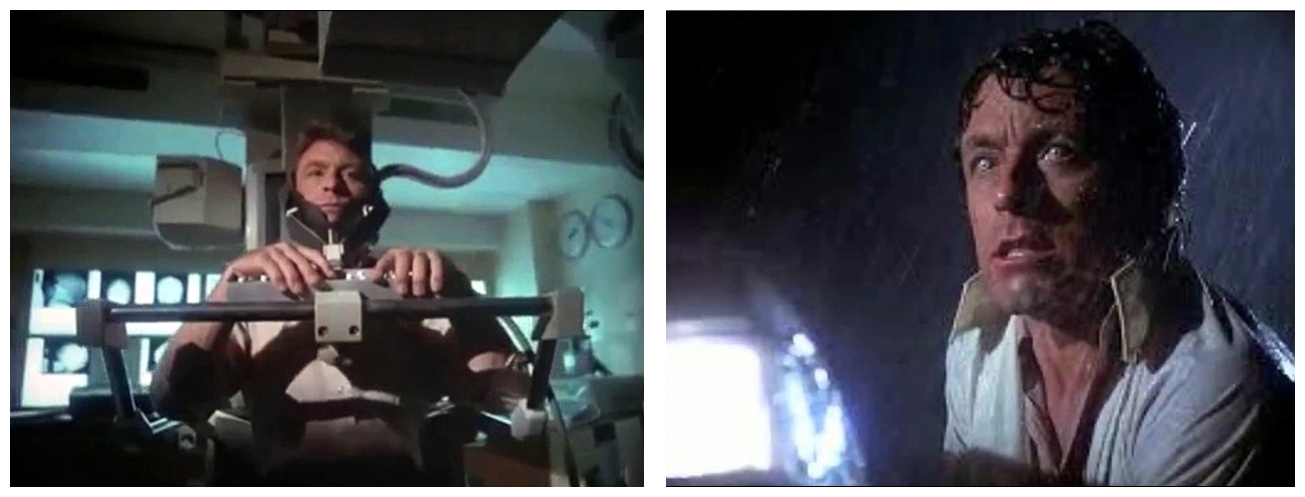
Many early stories featured US Army General Thaddeus ‘Thunderbolt’ Ross trying to capture or destroy the Hulk. Ross’s daughter Betty loves Banner and, while she doesn’t know about his secret identity, she derides her father for trying to kill the Hulk. Other details include having Banner change into the Hulk at sunset each day, but that was later changed to when the scientist became angry or stressed. After the comic was cancelled the Hulk made regular appearances in The Avengers, Fantastic Four and Tales To Astonish. In fact, Tales To Astonish was eventually retitled The Incredible Hulk, and the grumpy green giant continued to headline that comic book until 1999. Several writers have tinkered with the Hulk story, making him the victim of multiple personalities or linking him with some supernatural force. Banner’s cousin Jennifer Walters was also added as the She-Hulk but, after all the dust has settled, the Hulk is basically a mutation created when Banner received a high dose of radiation while saving a teenager. The comic series has continued to make Banner’s ‘Jekyll & Hyde’ relationship with the Hulk a very real one.
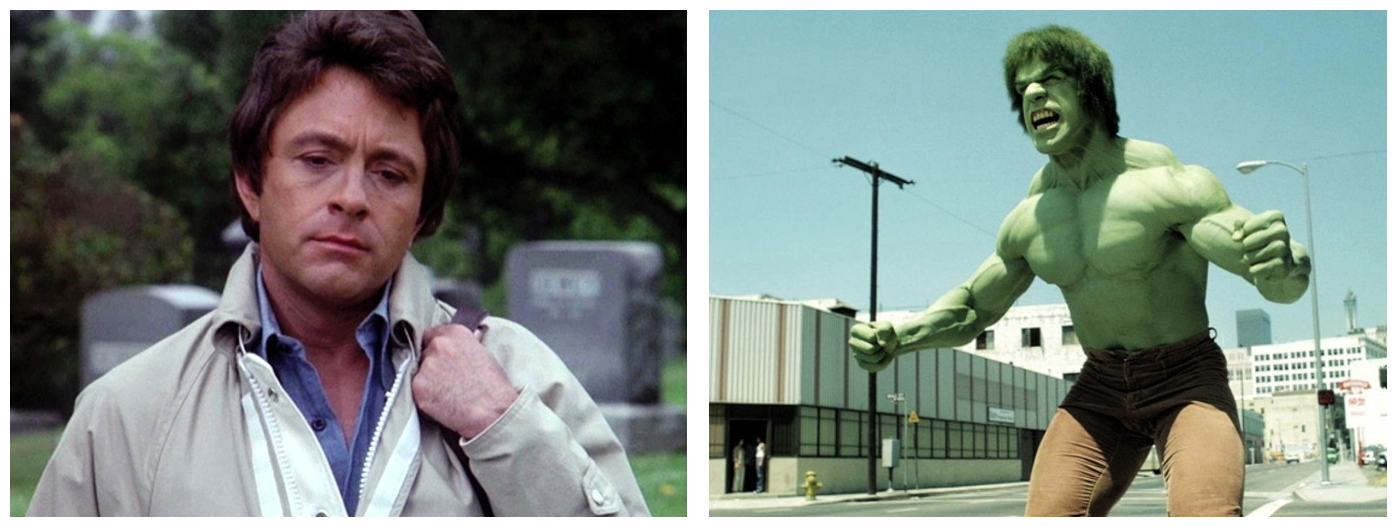
Like Captain America, Iron Man, Thor and the Sub-Mariner, the Hulk made his first media appearance in 1966 on the Marvel Super Heroes animated television series. The Incredible Hulk live-action television series was launched late in 1977 with a two-hour movie-length pilot produced, written and directed by Kenneth Johnson (who would go on to create the eighties alien invasion series ‘V’) starring Bill Bixby as David Banner (the name Bruce was considered too weak). When his wife dies in a tragic car accident that he was unable to prevent, Doctor David Banner (Bixby) begins researching how to tap the hidden powers of strength that he believes are in all humans. He interviews and examines people who have displayed this kind of super-strength under duress, and determines that the unknown factor is gamma radiation. Convinced in his decision, Banner deliberately overdoses himself with gamma rays.
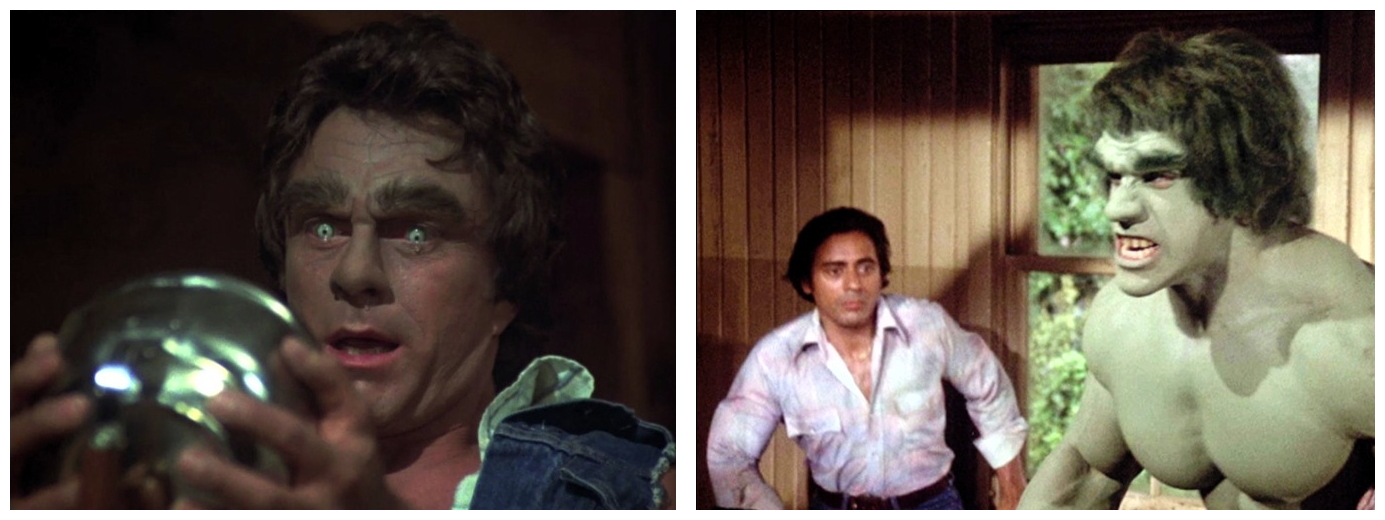
There’s no immediate effect but, later when he injures himself while changing a car tyre in the rain, the rage and frustration transform him into a massively powerful green giant known as the Hulk (Arnold Schwarzenegger was too short, Richard Kiel was too thin, but bodybuilder Lou Ferrigno was just right). He eventually changes back to normal and realises that he has experienced something both wondrous and frightening. He enlists the aide of fellow scientist Doctor Elaina Marks (Susan Sullivan) but, when she is killed in a freak accident, he becomes a fugitive. Reluctantly, Banner leaves his home behind to wander the country in search of a cure, with investigative journalist Jack McGee (Jack Colvin) following the monster’s trail of death and destruction. The series was patterned after The Fugitive (which, in turn, was inspired by Les Misérables), a phenomenally popular series starring David Janssen as Doctor Richard Kimble, a fugitive running from the law while searching for his wife’s killer.
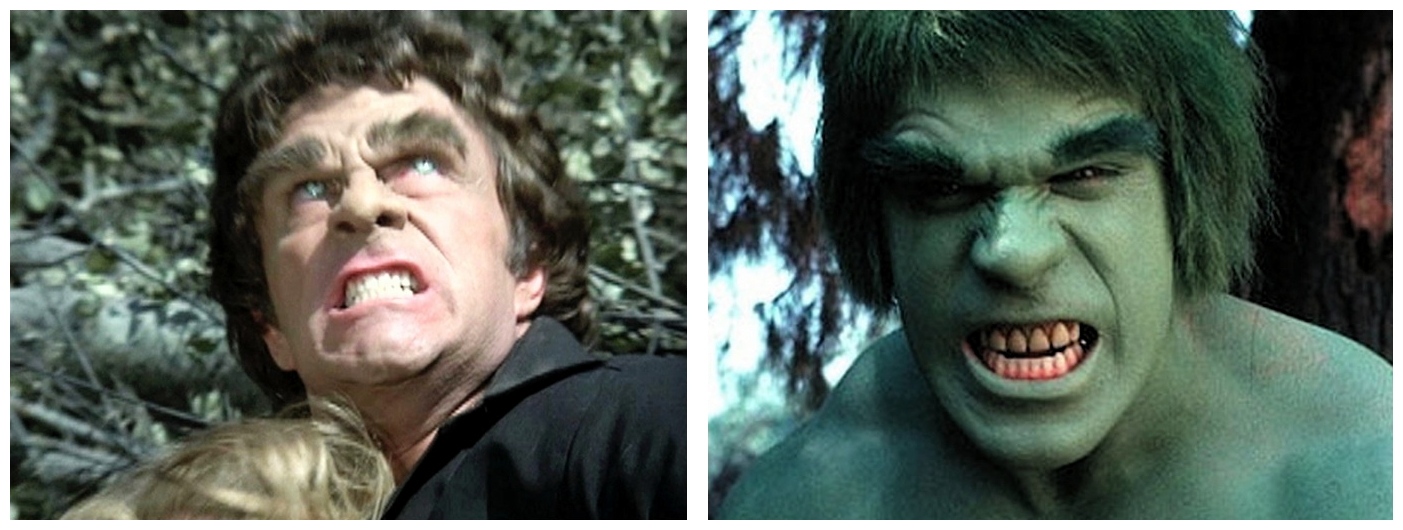
Each week, just like The Fugitive, Banner met a new guest star who needed his help. This premise was popular enough to give the series an unusually long lifespan and, in a 1979 interview with Samuel L. Moore, Ferrigno explained why: “Everyone has his own little Hulk inside him. By watching the show they have a way of releasing their own pent-up frustrations. It’s one way to deal with the daily aggravations that can build up and really get to bug you. The quality of our scripts is the reason the Hulk has kept going for so long, When the show came in as a winter replacement there was a big rush with the scripts and it took a while to find out where we wanted to go. I have to admit that there were even a few stories last year that seemed to drag a bit, but we have the best writers now and next season will absolutely be the best ever. It’s going to be especially tough on me. There’s going to be some days when I’ll have to be in all that makeup for fifteen hours at a stretch, but it’s worth it.”
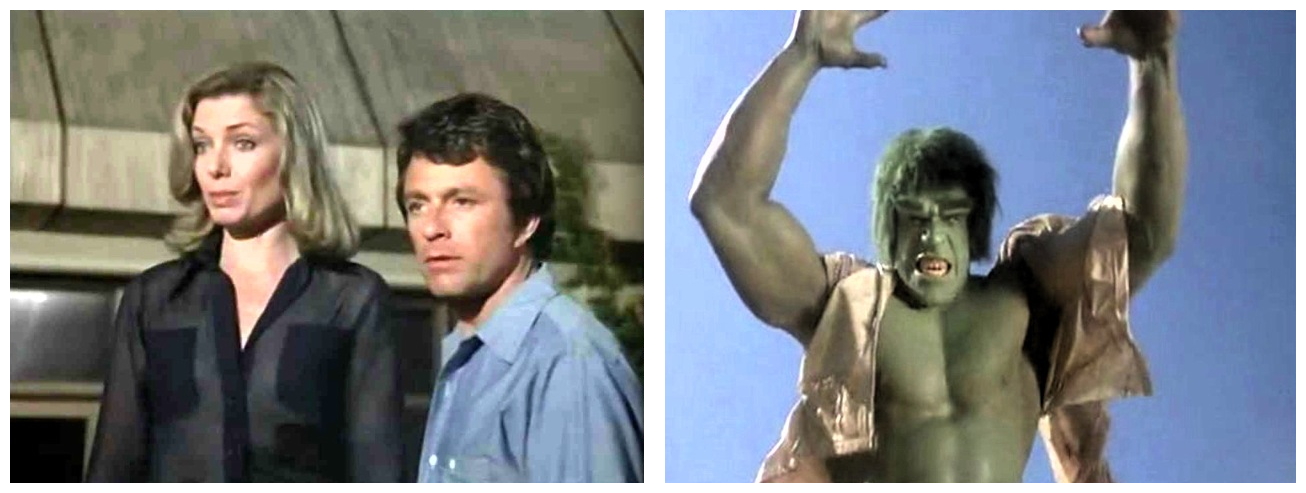
“Frankly, I think they should show more of the Hulk. After a while people are going to get tired of getting turned on just by the story. The shows should revolve more around the Hulk – who he is, what he feels, and the different emotions he has. They could have him get involved with a woman or maybe make friends with a child. Now, these ideas are basically my own opinions, but they can do what they want with the scripts. I sure can’t argue with the success of the series so far. And he should be able to talk, only a few words, but some way of communicating, or at least dub in more realistic growls than they use now, they’re too animalistic and sound phoney (the Hulk was voiced at various times by Ted Cassidy of The Addams Family, and character actor Charles Napier). Basically, I’m in the gym business and I’m not going to let my future depend entirely on the Hulk. I might get ten different roles after the series ends or I could get zero, it’s a fluctuating thing. But I’ll have to worry about those big question marks when I come to them, though right now I’d like to see the Hulk go for five or six years.”
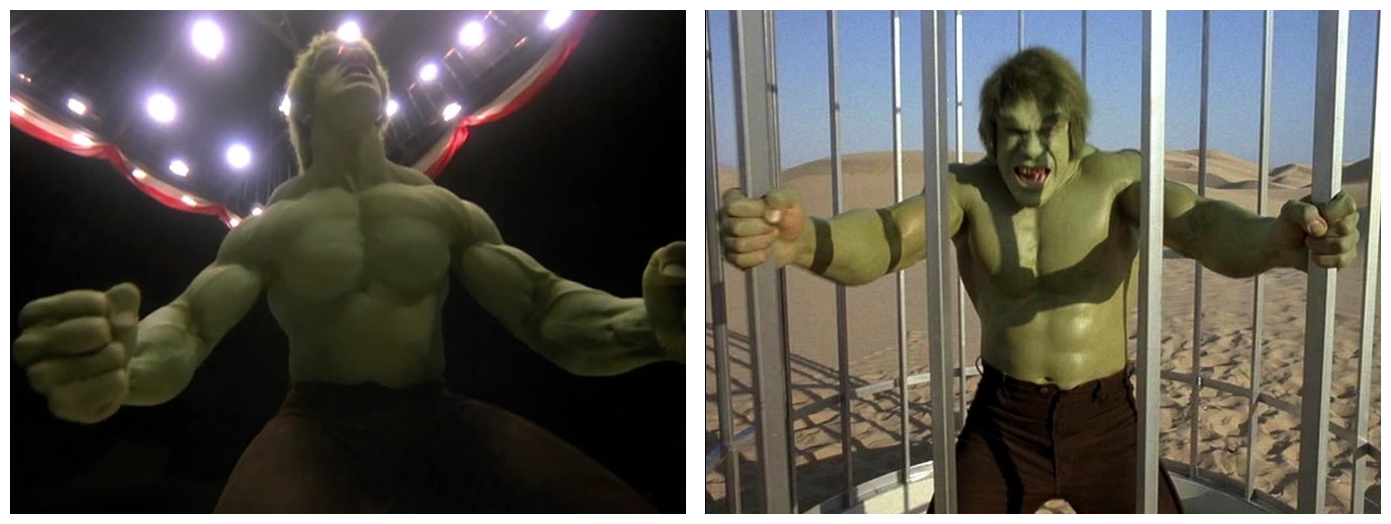
“I think I’d be good as a coach, naturally as any kind of athlete. Maybe a part in a James Bond-type film, like that Jaws (Richard Kiel) character, or even a comedy. Anybody could play Darth Vader. Vader is basically just a big guy behind a costume. The character shows no emotion, no nothing. If you really showed the emotional side of the Hulk, he could be even hotter than Star Wars (1977). Battlestar Galactica didn’t show any feelings, and that’s the big reason why I think it was cancelled. The second pilot movie we made (A Death In The Family) is my favourite of them all, mainly because I got the chance to wrestle a bear, and the story was set in a swamp. I think things like that add a lot of dramatic atmosphere and help show the Hulk’s action and power. And I also enjoyed Ricky – the one about the retarded boy – very much. It was sensitive. The network really missed the boat with Spider-Man. It could really be done well with Patrick Duffy as Spider-Man, Pat has a natural litheness and sense of movement and, as for Wonder Woman, there’s nothing there, nothing to show at all but a beautiful body, and that’s it. You never get a chance to find out anything about the person at all. What a bore. I can’t understand why that show ran for as long as it did.”
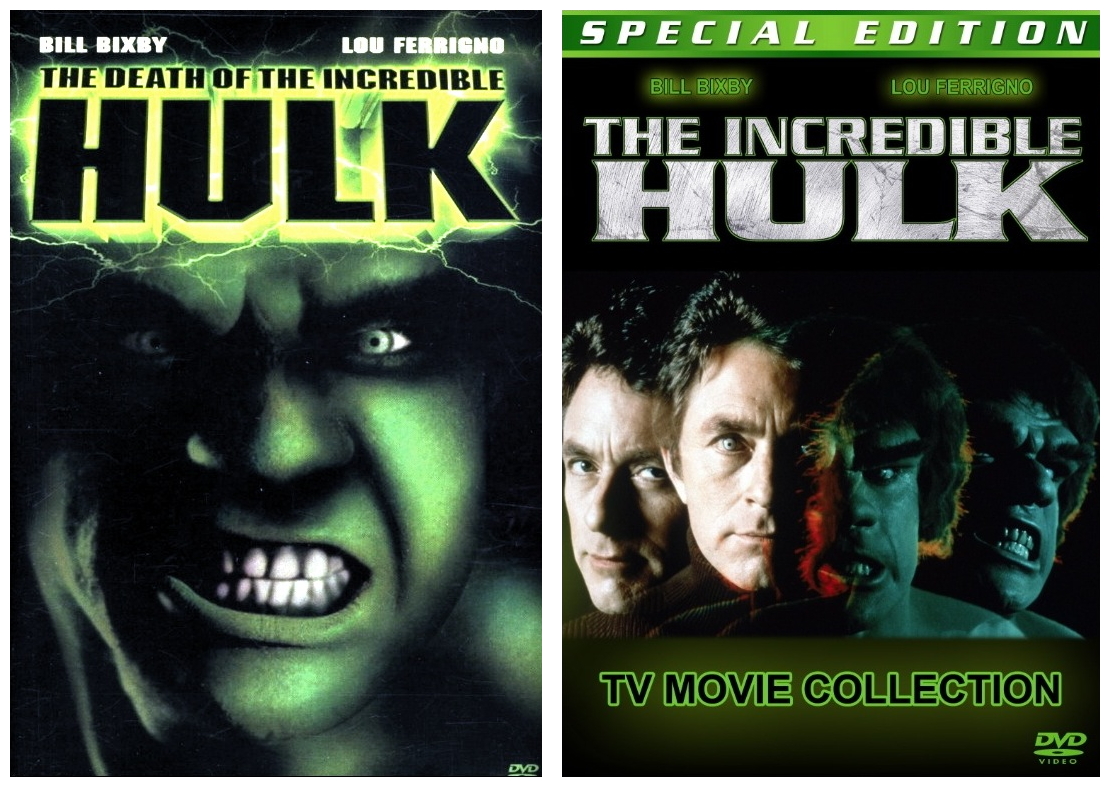
“We’re the best of them all. Kenneth Johnson and Bill Bixby are both very talented, creative people. It’s because of people like them that we have the respect of both the critics and the audience. No one really ever took the other comic-book shows seriously. They looked at them more as Batman-type ‘camp’ stuff. It would have been easy to do the Hulk as a monster show, but that’s not what the Hulk is about. He’s not a Frankenstein, he’s like a big kid who doesn’t know his own strength. The Hulk has his good and bad sides that react to the way other people treat him.” During its five-season run, many familiar actors could be spotted, including Susan Sullivan from Falcon Crest and Castle, Kim Catrall from Big Trouble In Little China (1986), Star Trek VI: The Undiscovered Country (1991) and Sex And The City (2008), Ray Walston from My Favourite Martian, Brandon Cruz from The Courtship Of Eddie’s Father, and original creators Stan Lee and Jack Kirby made cameo appearances.
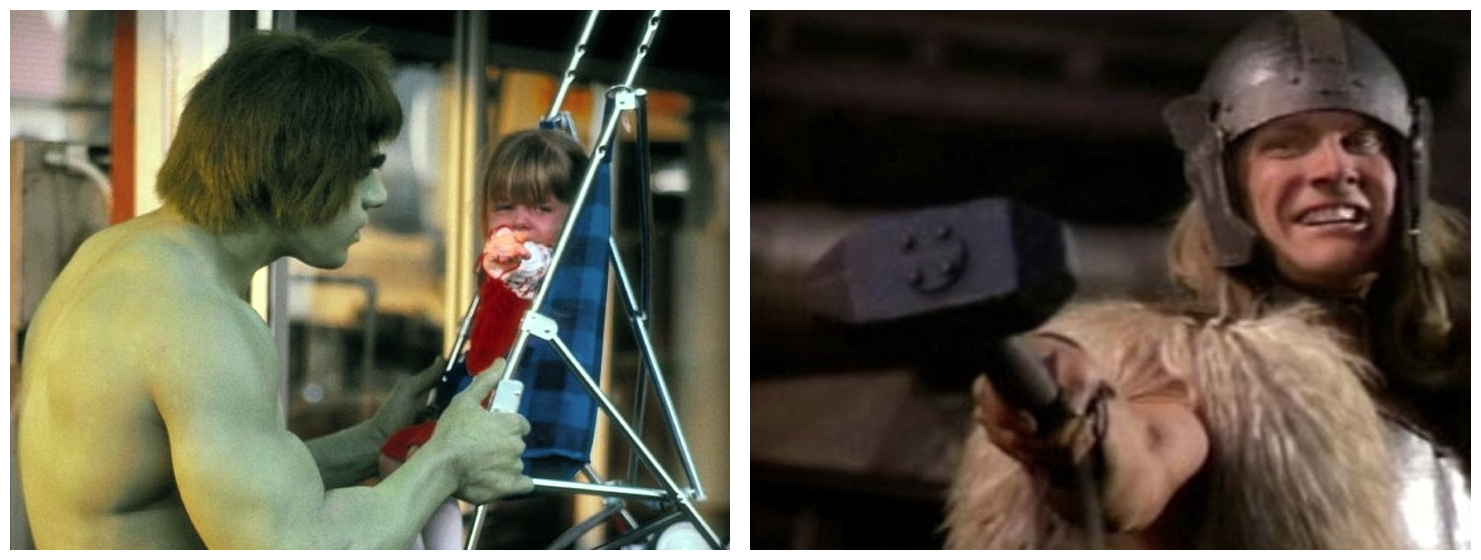
When Universal packaged several of its episodes as movies for release to the European market and then released the balance of the episodes into syndication in the United States, The Incredible Hulk demonstrated an amazing vitality that was lacking in most other shows of the day. In response, Universal produced several tele-movies. Directed by Nicholas Corea, The Incredible Hulk Returns (1988) takes place two years after the Hulk disappeared at the end of the series (six years had passed in real-life). Banner (Bill Bixby) needs the Gamma Transponder, a device which he helped create, to finally cure himself of the Hulk. Meanwhile, the hammer of Thor (Eric Allan Kramer) has been stolen and found its way into the hands of Don Blake (Steve Levitt), a former colleague of Banner’s. The hammer is a mystical weapon capable of summoning the god of war to do anyone’s bidding. When the Gamma Transponder is nearly stolen and Banner’s girlfriend Maggie (Lee Purcell) is kidnapped, Banner is forced to give up his plans of being cured and rely on the Hulk and Thor to save the day. Naturally, Jack McGee (Jack Colvin) is there to hound Banner every step of the way.
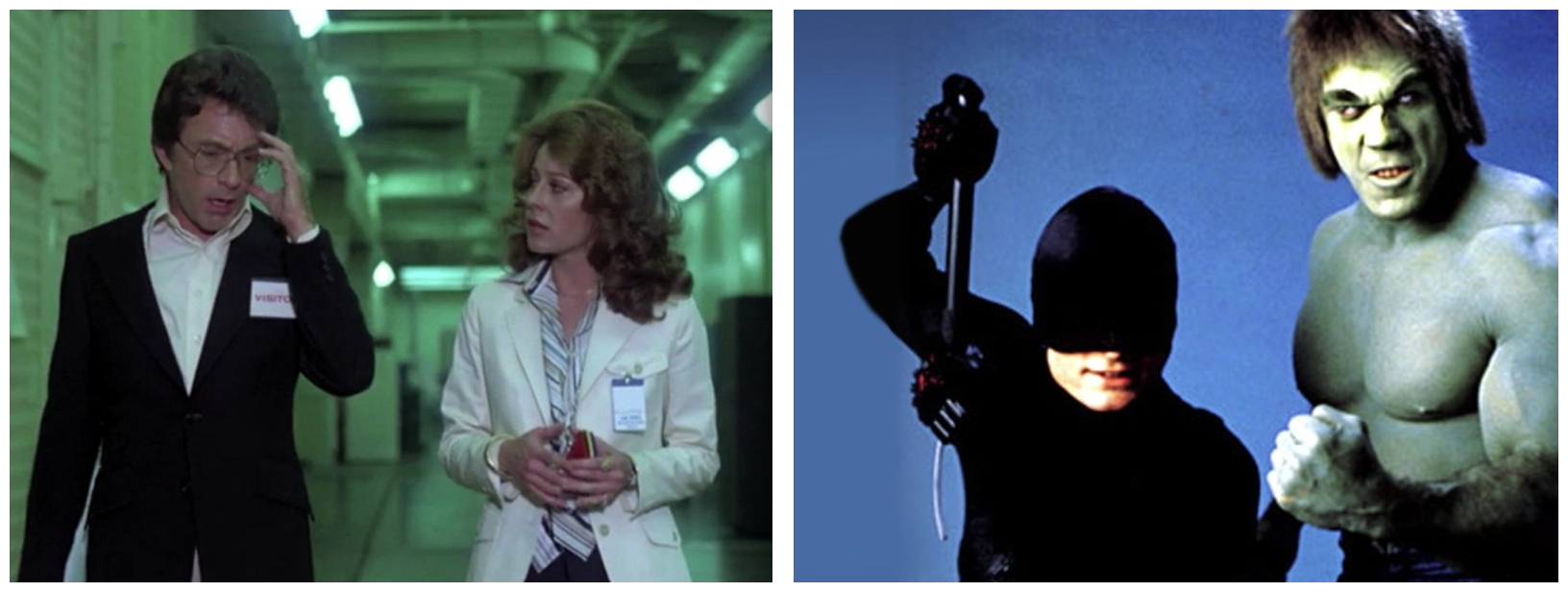
The Incredible Hulk Returns is not great (the character of Thor bears very little resemblance to the comic character), however it did do big business outside the United States, and spawned two additional sequels. The Trial Of The Incredible Hulk (1989), directed by Bixby himself, found Banner on trial for a crime he didn’t commit while traveling through New York. His court-appointed attorney is Matt Murdock (Rex Smith) who also happens to be the vigilante known as Daredevil. Murdock believes Banner is innocent, and strives to show that the city’s resident crime-kingpin is responsible, a man named Wilson Fisk (John Rhys-Davies). Murdock visits a witness (Nancy Everhard) to make sure she tells the truth, but she’s too scared. Later someone tries to kill her, but Daredevil comes to the rescue. We eventually learn that Murdock had a similar accident with radioactive materials, which left him blind but heightened his other senses. Together, Daredevil and the Hulk work to expose the Kingpin for who he truly is. Problems include Daredevil’s black costume (instead of red) and, while Rhys-Davies definitely has the girth to play Kingpin, he does so with a full head of hair and beard. While this one is grittier and more dynamic than the first, the ratings for these tele-movies had dropped off substantially.
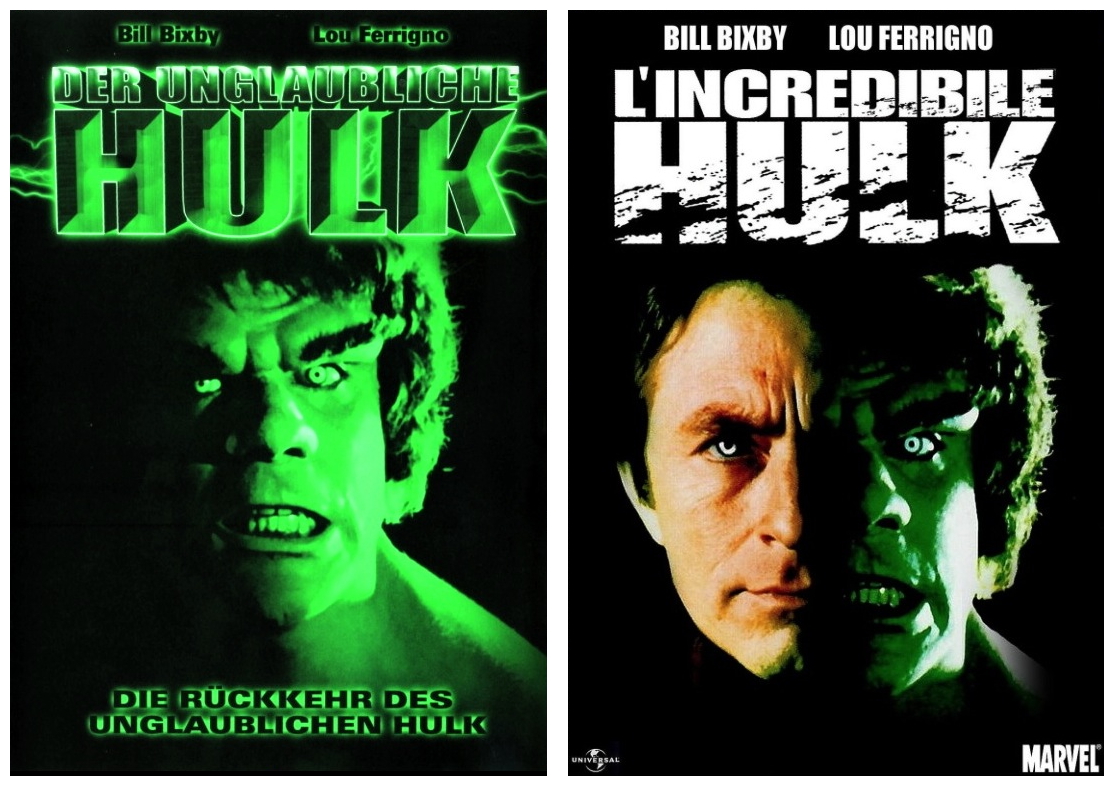
If it wasn’t for its popularity in Europe, Universal might have stopped the franchise right there and then. The third and final tele-movie was suitably titled The Death Of The Incredible Hulk (1990), also directed by Bixby. This time Banner falls in love with an Eastern European spy named Jasmin (Elizabeth Gracen) who destroys his laboratory during a critical experiment. She tells Banner that she did it because her sister (Anna Katarina) is being held captive. Together, Banner and Jasmin escape enemy agents and try to rescue her sister. Unfortunately, the film ends with the Hulk taking a fatal fall from an aircraft. Despite killing off the character, Universal intended to bring the Hulk back in a fourth tele-movie entitled The Revenge Of The Incredible Hulk and a script was written by Gerald Di Pego, but the project was reportedly shelved due to Bixby’s losing battle with cancer. The teleplay has Banner revived and cured of the Hulk, and the government hires him to investigate accidents like the one that turned him into the Hulk. Unfortunately Banner is kidnapped by villains and forced to mutate their agents into Hulk-like creatures so, in order to stop the villains, Banner needs to recreate the original accident that turned him into the Hulk.
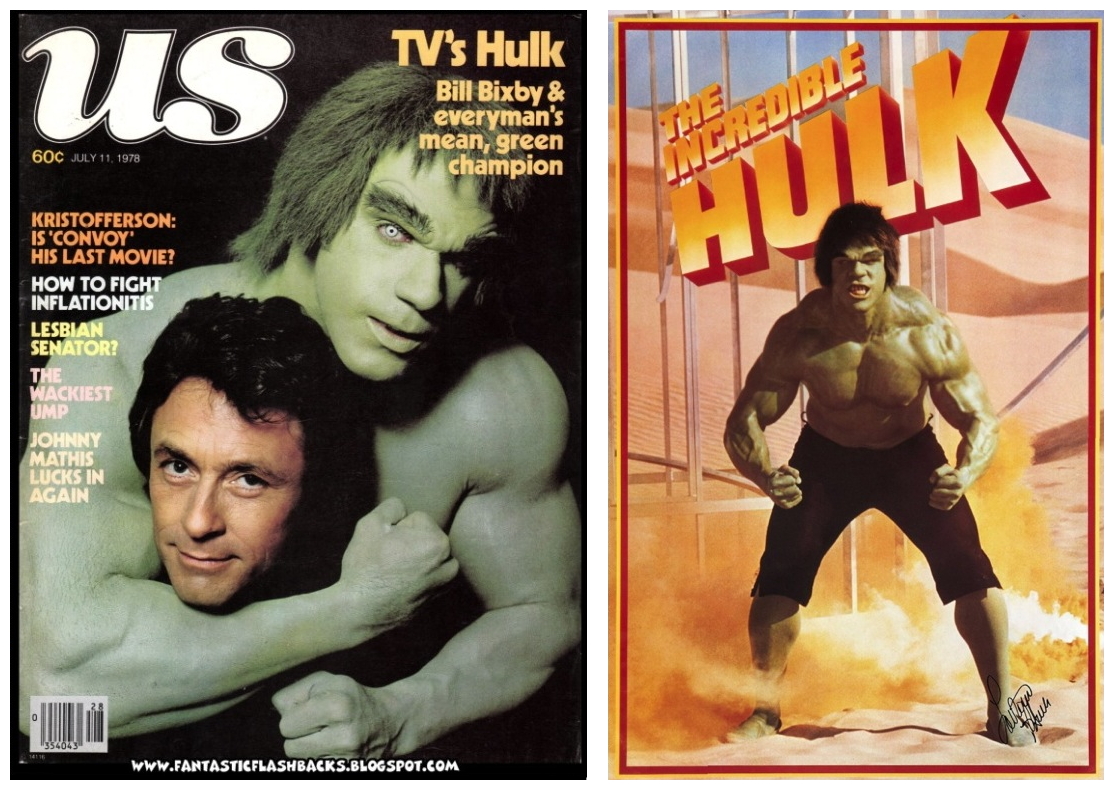
The fourth tele-movie was canceled, not only because of Bixby’s declining health, but also because The Death Of The Incredible Hulk bombed badly in the ratings. The rest, as they say, is history. Now one of the most iconic characters in popular culture, the Hulk has appeared on myriad merchandise from clothing to collectables, inspired real-world structures, theme park attractions, and has been referenced in a gazillion films and television shows. There have been Hulk cartoon series and video games, not to mention the recent box-office blockbusters starring Eric Bana (2003), Edward Norton (2008) and Mark Ruffalo (2012). I enjoy all these recent interpretations for different reasons, but my particular favourite is Hulk (2003), and I understand many fans would disagree. Bana may not be the best Banner, but he is a good choice for someone who can convincingly play both a pathetic wimp and a threatening monster in the same scene, and his casting was based on his excellent portrayal of real-life killer Chopper (2000).
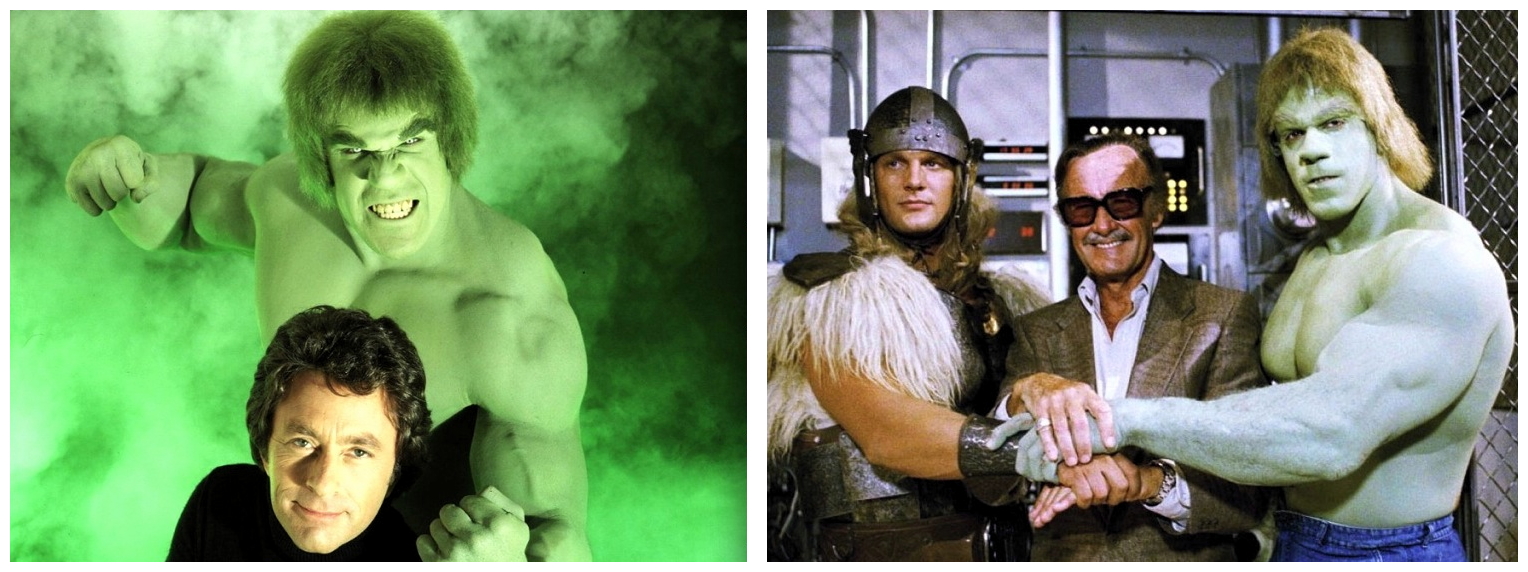
Supporting cast is nothing short of fantastic (Jennifer Connelly, Sam Elliott, Nick Nolte) and Industrial Light & Magic‘s effects remain superlative, but what grabbed me most was the esoteric story and the spectacular style used to tell it – transitions, split-screens, comic sans, freeze-frames – every cinematic trick you can think of to make you feel like you’re observing a moving graphic novel. In my humble (but almost certainly correct) opinion, the 2003 version was aimed at fans of the original comics, while The Incredible Hulk (2008) starring Edward Norton was made for fans of the television show. Before you have time to digest that crummy nugget of knowledge from a very special source, I’ll quickly say my goodbyes and disappear into the night, but not before inviting you to return next week to sacrifice more minutes of your precious life to witness dark depravities never before realised (well, almost never) here at…Horror News! Toodles!
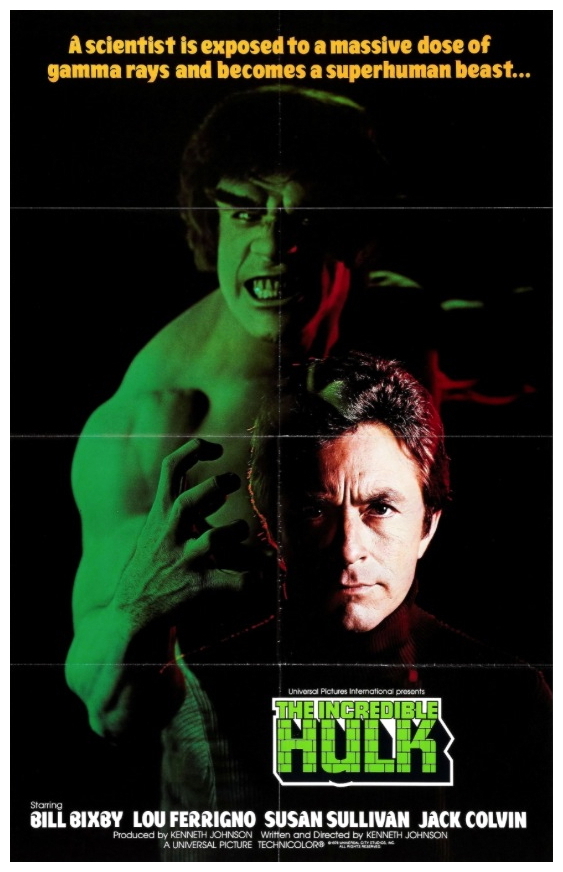
The Incredible Hulk (1978-1982)
 Horror News | HNN Official Site | Horror Movies,Trailers, Reviews
Horror News | HNN Official Site | Horror Movies,Trailers, Reviews
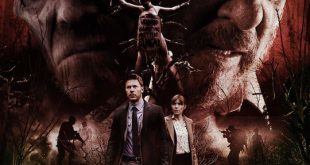
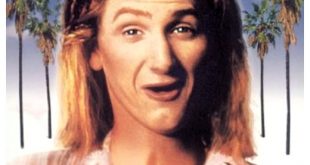
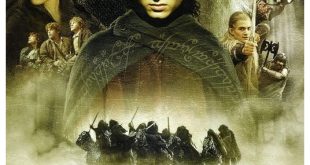
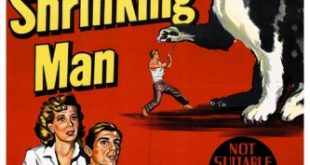
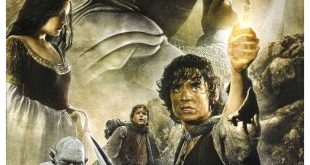
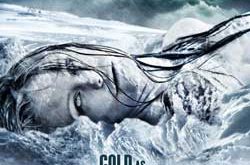
I’ve yet to see a television or movie incarnation of The Hulk that truly works. The TV series was good for it’s time but really doesn’t capture a comic book vibe. The 2003 movie Nigel favors didn’t appeal to me at all, I found it boring, badly paced and possessing some truly terrible F/X. The same lousy CGI can be found in the 2008 film… it often feels like watching a video game you can’t play. Ditto the first Avengers movie… though the characterization was more amusing.
In truth I don’t think we’ll get a decent Hulk on screen unless someone clues in that CGI won’t do the trick. During ‘The League of Extraordinary Gentlemen’ I remember thinking that Hyde was done right, it’s how they should do the Hulk F/X as well. After that look to Peter David’s more intelligent comic book incarnation; that could result in something good.
For us who grew up during that era, Hulk was as cutting edge as TV would allow. By no means does the 80’s hulk measure up to the modern versions of Hulk. But also keep in mind there was no CGI back then. This goes the same for early Fantastic four, early Spiderman and early Captain America. Remember we even thought “Kiss meets the Phantom” was cool (back in the day).
What I remember from those days was a TV drama that had alot of heart usually ending with Bill Bixby becoming the Hulk due to some traumatic circumstance. The films which were basically slightly longer TV episodes occasionally featured a guest Marvel superhero making for a nice surprise.
Now with today’s standards, new viewers would certainly find these shows silly and dated, however there is still a special affinity some of us hold for older TV programs that works for us in a special way. Whether it’s Hulk, Andy Griffith, Petticoat Junction or Brady Bunch, there is something to be said for programs of a different era.
I’m not crapping on TV shows just because of their age, like all art they are reflective of their times. If an original Twilight Zone or Doctor Who (70’s and 80’s) shows up I’m more than happy to watch. The TV version of the Hulk wasn’t bad, but at the same time it was airing the Hulk comic books featured the jolly green giant fighting super villains… the tone was just very different and the younger me wanted that.
To be honest, I was not a fan of The Incredible Hulk show – even back then I found it extremely formulaic. I was already familiar with many comics, and considered the TV shows of the era (like Incredible Hulk, Wonder Woman, Spider-Man, etc.) as ‘noble attempts’. They weren’t great when they were made, and they haven’t aged very well, certainly in light of the recent superhero boom in cinemas and on television (so much of it that it’s hard for me to keep up!).